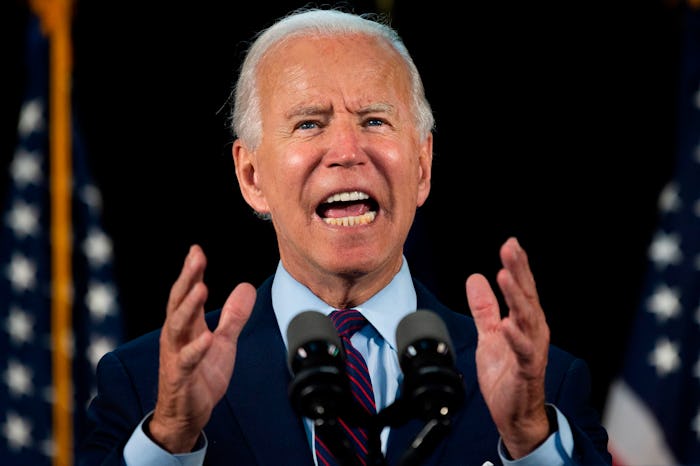News

Joe Biden's Call To Fund Special Education Is A Really Big Deal
In a detailed proposal of his disability policy plan, former Vice President Joe Biden has vowed to ensure students with disabilities have access to vital educational programs and support. But while Biden's plan for special education aims to boost funding for students with disabilities, it remains unclear how likely Congress is to comply.
After enduring months of criticism for being the only 2020 Democratic frontrunner not to have a disability policy plan, according to Vox, Biden introduced a plan in late May which would fully fund the Individuals with Disabilities Education Act (IDEA), something Congress has never done.
When Congress passed the first iteration of IDEA in 1975 (then known as Education for All Handicapped Children Act), it agreed to financially assist states in covering the additional costs associated with ensuring all children with disabilities were provided a free, appropriate public education. Under the law, Congress should have provided each state with a federal grant equal to the state's number of children with disabilities multiplied by 40% of the national average per-pupil expenditure by 1982.
Unfortunately, Congress has consistently failed to meet this 40% threshold. In fact, in 2019, a report from the Congressional Research Service concluded that Congress' recent funding of IDEA was less than half of what the law promised. What's more, the National Education Association has estimated that Congress won't fully fund IDEA until 2035 if it continues its current pattern of increases.
As part of his disability policy plan, Biden promised to fully fund IDEA in an effort to fulfill the law's promise of providing students with disabilities a free, appropriate public education in the least restrictive environment. The former vice president also promised to triple Title I funding, effectively increasing the resources educators have to help them meet the needs of students with disabilities.
"Biden will ensure that schools provide students with disabilities appropriate support, including sign language interpreters, readers, door-to-door transportation, computer-assisted devices, augmentative and alternative communication, as well as braille materials," the plan read.
Biden's plan also includes a proposal to fund the placement of early childhood development experts at all community health centers and pediatrician offices where a high number of Medicaid and Children's Health Insurance Program patients are served. His plan also included efforts to address racial disparities in special education programs to ensure students of color are not being disproportionately identified.
The presumptive Democratic nominee has also called for making affordable, quality child care accessible to families with children with disabilities by making sure care staff have the necessary skills and training to care for children with disabilities. Biden also promised to provide professional development opportunities to teachers who work with students with disabilities, making it possible for them to earn additional certifications in special education while teaching without accruing more debt and directing the Department of Education to support teacher preparation programs.
While members of Congress are ultimately the only ones who can increase IDEA funding, special education advocates have applauded Biden's proposal as a step in the right direction. "It's hugely significant," Carolynne Bottum, a UC Davis School of Education lecturer and former director of the Special Education Local Area Plan for Yolo County, told Ed Source. "This wouldn't just benefit students with disabilities, it would benefit all children."